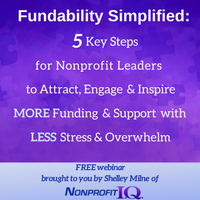Myth #3 – Knowledge is Power!
Well, this is one partially true, which is usually the case with most myths, falsehoods and fallacies. Knowledge can be extremely powerful and it is absolutely necessary for sustainable progress to happen. However, think about all of the knowledgeable people you’ve known throughout your lifetime. How many of them do you feel have been particularly powerful solely because of their knowledge? I don’t know about you, but some of the smartest people I’ve known have also been the nuttiest. I’m sure most of us know geniuses that are certifiably crazy.
 KNOWLEDGE backed up by ACTION is truly the key to power. Let’s take a look at some of our most powerful and influential geniuses: Bill Gates, Paul Allen, and Steve Jobs are all excellent examples. All three men have transformed the way people and businesses function in our modern world. If these guys just sat around reading books and playing Dungeons and Dragons, while never actually applying vast database of knowledge in their brains, they would have never developed the incredible business empires they created and our world would look entirely different than it does today!
KNOWLEDGE backed up by ACTION is truly the key to power. Let’s take a look at some of our most powerful and influential geniuses: Bill Gates, Paul Allen, and Steve Jobs are all excellent examples. All three men have transformed the way people and businesses function in our modern world. If these guys just sat around reading books and playing Dungeons and Dragons, while never actually applying vast database of knowledge in their brains, they would have never developed the incredible business empires they created and our world would look entirely different than it does today!
How Does This Apply to YOU & Your Nonprofit?
How many times have you gone to a meeting or a training and learned one or maybe even several things that were new to you or perhaps just a different way of approaching a situation or problem? Then, when you got back to the office, you immediately rushed on to something else rather than spending some time thinking and planning how to actually employ that gem (or gems) of knowledge to really propel organization your forward?
 Hey, look I get it! We are a short-attention span society – Many call this “squirrel syndrome” and I’m just as guilty as the next person. We are all super busy and there’s nothing wrong with that. But what if we carved out an extra ½ hour or even just 15 minutes following every meeting or training to figure how to utilize what we’ve just learned for our organizations’ greatest benefit? If you cannot carve out the time immediately following your meetings, you can certainly plug some time into your calendar to do it within the next day, right? After all, what’s the point of taking the time to go to a meeting to learn something if we never utilize the knowledge? How much more productive would you be if you actually took the time to apply your newly found knowledge?
Hey, look I get it! We are a short-attention span society – Many call this “squirrel syndrome” and I’m just as guilty as the next person. We are all super busy and there’s nothing wrong with that. But what if we carved out an extra ½ hour or even just 15 minutes following every meeting or training to figure how to utilize what we’ve just learned for our organizations’ greatest benefit? If you cannot carve out the time immediately following your meetings, you can certainly plug some time into your calendar to do it within the next day, right? After all, what’s the point of taking the time to go to a meeting to learn something if we never utilize the knowledge? How much more productive would you be if you actually took the time to apply your newly found knowledge?
Put Your Knowledge to Action
I don’t know about you, but I LOVE learning. I am constantly learning from experts and thought leaders because the one thing that I know for sure is that I don’t know everything. The key is limiting the input and focusing in on only those specific items that can help achieve your goals.
As nonprofit professionals, most of us are givers. The industry is filled with amazingly generous individuals – people who give their time, energy and event their livelihoods to creating a better world. That is a truly noble thing, but if we want to be more effective leaders, that generosity must be tempered with discernment as well. We can learn to be discerning about how we spend our time and energy.
For example, are you spending so much of your time in meetings (that perhaps accomplish very little) that you don’t have time to work on the items on your To-Do list that will help you achieve your goals? Do you even have written goals and a To-Do list that breaks down those goals into actionable items?
 It’s your call. You can choose to be more discerning with your time and attention and challenge yourself to act on whatever you’re learning to ensure that you’re making the very best use of your precious time or you can wing it and stay ensconced in a perpetual cycle of reacting to every little issue that crops up so you never have a chance to put your knowledge to ACTION.
It’s your call. You can choose to be more discerning with your time and attention and challenge yourself to act on whatever you’re learning to ensure that you’re making the very best use of your precious time or you can wing it and stay ensconced in a perpetual cycle of reacting to every little issue that crops up so you never have a chance to put your knowledge to ACTION.
Below are some simple recommendations. Don’t let the simplicity fool you, however. It takes consistent practice over time to overcome our old patterns and create new habits. Just be willing to try and you don’t beat yourself up when you fall back into your old patterns. When that happens (and it almost certainly will because our habits are subconsciously preprogrammed responses), simply notice it, give yourself a do-over and begin again. You will eventually create new patterns that serve you and your organization better and that empower you to utilize your own database of knowledge and help you create a more efficient and effective nonprofit.
Here are the steps:
- After a meeting or training, set aside time to plan if and how you can utilize whatever you learned or discussed. Write it down. Keep a log.
- Prioritize any actions and activities and identify the most appropriate person/people to be responsible for completing the action. This may be you, but whenever possible, delegate to others.
- Act as quickly as possible on only the items that are higher on your priority list. Let non-important items go. Realize it’s OK to say no to people when it would better serve you to NOT do something. Just be clear and communicate effectively so as not to cause unnecessary challenges.
- Schedule time to follow up and check progress so that you and anyone else who is involved has accountability for the results.
Do You Want More?
 If you haven’t already signed up to receive Nonprofit I.Q.’s Hot Freebies, we have some great tools and resources to get you started. Here’s what you get when you sign up:
If you haven’t already signed up to receive Nonprofit I.Q.’s Hot Freebies, we have some great tools and resources to get you started. Here’s what you get when you sign up:
![]() Fundability Report Card – A simple and quick assessment to help you identify the areas that your nonprofit should prioritize time and energy to attract the funding and support needed for ongoing success.
Fundability Report Card – A simple and quick assessment to help you identify the areas that your nonprofit should prioritize time and energy to attract the funding and support needed for ongoing success.
![]() Nonprofit Notions: Weekly Wisdom from the Experts – This weekly tip series provides valuable advice from experts and thought leaders helping you make simple changes that will create powerful improvements for your nonprofit – but only if you implement them. Look in your inbox every week for your email which includes instructions on how to implement that week’s tip.
Nonprofit Notions: Weekly Wisdom from the Experts – This weekly tip series provides valuable advice from experts and thought leaders helping you make simple changes that will create powerful improvements for your nonprofit – but only if you implement them. Look in your inbox every week for your email which includes instructions on how to implement that week’s tip.
When you sign up, you’ll also be added to our mailing list so you’ll be amongst the very first to receive information on new trainings, tools and resources designed to help your nonprofit become more efficient, effective, and fundable… and to help YOU position your organization for ongoing success and sustainability



